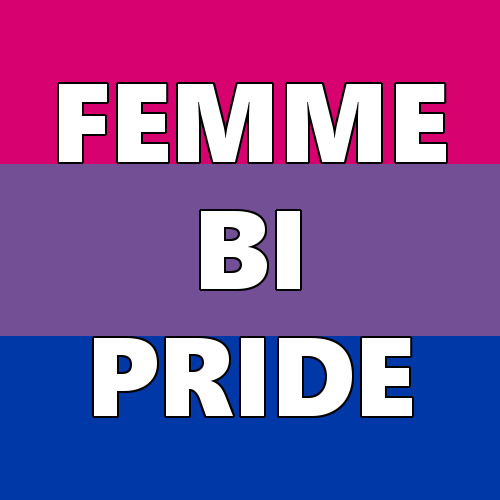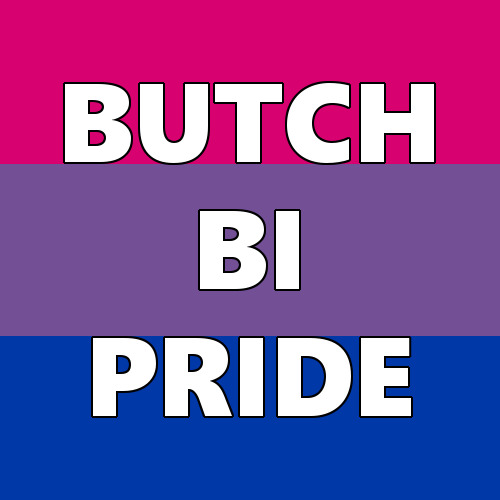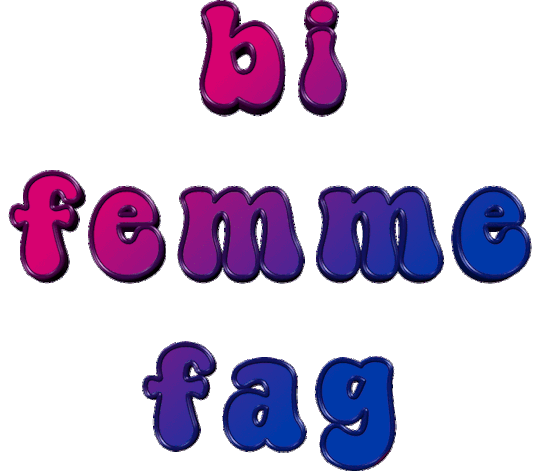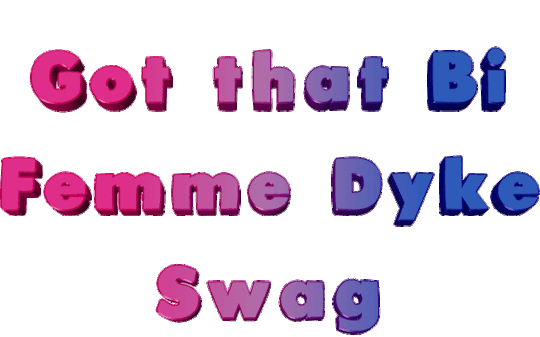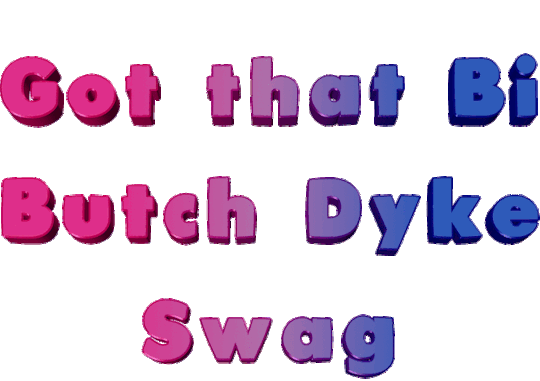A positivity blog for bisexual butches and bisexual femmes
Don't wanna be here? Send us removal request.
Text
propaganda im NOT falling for:
butchfemme is lesbian exclusive (???) (no its not) (where did you get that from) (do your research)
102 notes
·
View notes
Text
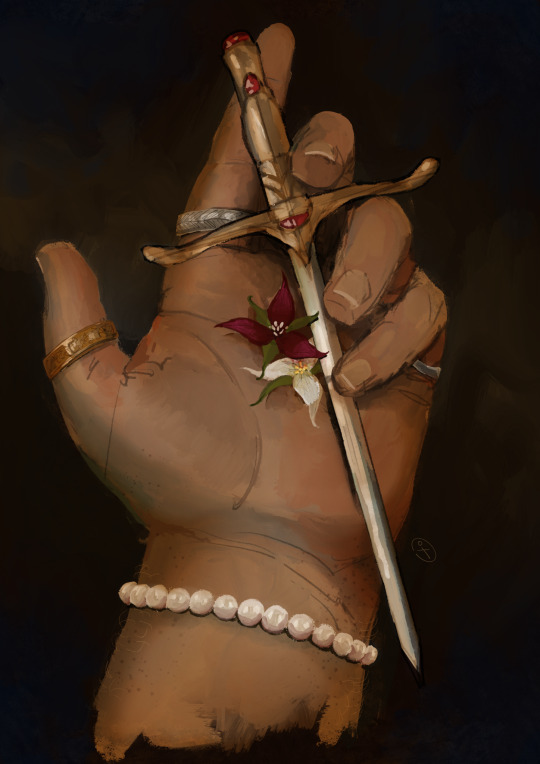
These Butch Bi Hands of Mine ~
I’ve always been a large person, my bones are big and wide, i’m fat and sturdy. I’ve been this way since i was a child, Boyish and rough in most places. My hands and feet as big as my dad’s, matching his size as we tussled in the backyard. As i refused to give up an inch in defiance of his strength over me.
I always felt out of place growing up. I’d grow my nails out long and paint them red and blue and gold in an effort to feminize my hands into an acceptable and dainty size. It never worked. I felt as if i was putting on a too small costume, scratchy and tight in all the worst places.
When i came out as bisexual they changed. My hands were now used to care for my queer community. Now they had purpose, used to hold and touch and love, and now found attractive and deeply desired by others like me.
When I came out as transmasculine they changed again. Suddenly I understood why the long nails and polish had felt so restrictive. It was an expression not of myself being forced on me, a standard gender that I was never going to meet and a desperate attempt to tell the girls around me ‘Look, i’m like you, I promise!”
When I came out as Butch, they changed once more and now they were a pride. Now that I had learned to use them to love my queer community, I in turn loved them myself. They felt like me. They touched my body, my hips, my chest, my face, all still evolving, all still uncomfortable, and they feel like home. The one piece of me that feels right. I love my hands. I love what they can do, the things they can make. The people they can hold, the flowers, grass, roots they can touch. The way that they dance and scratch and tear and build and wash and weave and play. They were the first part of me to emerge from my chrysalis, from my dark and constricted closet and they turned and began to pull the rest of me free.
I cannot make the changes to my body i want. I cannot look the way i am supposed to. I cannot see who I truly am when I look in the mirror.
But I can look down. And when i do, there’s a burst of warmth and i remember; My hands have always looked like me.
Symbolism in this piece:
Trillium Flowers: a symbol of bisexuality as they are considered a perfect bisexual plant having both male and female structures in one being.
A double edged dagger: A symbol of bisexuality in relation to double attraction (attraction to those like yourself and those different)
Pearls: A symbol of my masculinity and my birthstone. Being made through irritant covered in layers of shine before becoming a beautiful object. This is paying homage to my journey as a trans individual, becoming myself.
Gold and Silver Rings: A symbol of bisexuality, not choosing one color of jewelry to stick with but both. Mixing the options together to create a new identity
77 notes
·
View notes
Text
I wish people talked about how alienating it is to be butch and bisexual.
Almost everyone acts as if it's only lesbians who can be butches and even the lesbians who know that butch is not exclusive to them don't bother educating fellow lesbians. It's up to us and when we do try to educate others, we get harassed by terfs and exclusionists saying that we are "stealing lesbian culture" as if bisexuals weren't right beside yall helping build butch femme culture.
Heck even the butch bisexuals who are vocally active in the butch side of the internet don't call themselves bisexual and butch proudly in fear of getting harassed for being openly themselves. It's so fucking sad. I wish we had more solidarity. From lesbians, other queer people and especially other bisexuals. I wish I wasn't made to feel so isolated from the community that is supposed to be accepting of me.
471 notes
·
View notes
Text
Bi butches, I love you all
177 notes
·
View notes
Text
butch bisexual trans women reblog if u agree
27 notes
·
View notes

